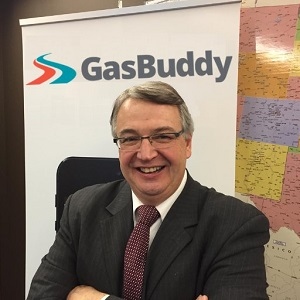Sep 22, 2017
Meet Canada's gas price gurus

Dan McTeague is relieved to be talking about something other than hurricanes for a change. McTeague, a gas price analyst at GasBuddy, and his colleagues have been fielding dozens of media requests a day during this hurricane season, thrusting him into a prominent role as one of the faces of North American gas price forecasting.
“The media is always interested when there’s a case for consumers, and a big, headline-grabbing storm always leads to a surge of calls,” he said in a phone interview. “By knowing what the effects of what a hurricane hitting a refinery is, and demonstrating it in the past, consumers and the media tend to keep coming back.”
 But it wasn’t a fascination with the weather that got him into this line of work. As a long-time Liberal Member of Parliament, McTeague’s interest in gas price analysis was piqued by what he describes as a failure on the part of the Competition Bureau to keep the gasoline industry from falling into a select few hands.
But it wasn’t a fascination with the weather that got him into this line of work. As a long-time Liberal Member of Parliament, McTeague’s interest in gas price analysis was piqued by what he describes as a failure on the part of the Competition Bureau to keep the gasoline industry from falling into a select few hands.
“Canadian competition rules allowed an oligopoly to form in gasoline refining and retailing, crushing independent stations and raising prices for Canadian consumers,” he said.
“What inspired this was the high concentration of control of the downstream market in the hands of only a handful of players. My purpose was shedding light on a fundamental flaw in Canadian regulation.”
While the regulatory landscape was the draw for McTeague, one of his industry counterparts, the Kent Group’s Michael Ervin, made the decision for purely economic reasons. Ervin, who has been involved in the energy industry for decades, found the field of consultants for upstream producers crowded, and saw a chance to get into the underserved downstream market.
“About 35 years ago, I saw an opportunity to provide consulting services for a niche that didn’t really exist at the time,” he said in a phone interview. “There was certainly a lot of expertise in the upstream in Canada, but very little in the way of refining and marketing expertise: the number of people collecting retail price data was miniscule.”
 Ervin noted the industry has become much more crowded in recent years, in particular the proliferation of free websites providing crowdsourced data, but said he isn’t too concerned about competition due to his firm’s revenue model.
Ervin noted the industry has become much more crowded in recent years, in particular the proliferation of free websites providing crowdsourced data, but said he isn’t too concerned about competition due to his firm’s revenue model.
“Up until about five years ago, we were kind of the only game in town. In one way, I’m kind of relieved we don’t get as many calls as well used to. In some ways, I don’t think others really compete with us. We’ve not in the business of crowdsourcing consumer prices,” he said.
“Our real niche – which we still solely occupy – is providing more detailed analytics on what’s going on with prices and margins, mainly from paying clients who want more than just a soundbite from the media.”
McTeague is similarly sanguine when it comes to operating in what’s becoming a much more crowded field, arguing consumers are better served by more analysts shedding light on pricing practices.
“I’m pretty confident I can help people along the way, and the difference between knowing what they’ll pay tomorrow or the next day can save you three or four dollars a week,” he said. “If others do what I do, try to save Canadians money, the more the merrier.”


